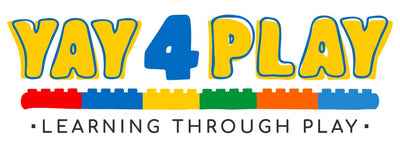What’s the same and what’s different?
We are often asked about how these two leading schools of thought differ and where they cross over. In this basic table below, we highlight some of the main ways in which the Six Bricks Method and the Steiner Philosophy differ and how they are also have some similarities in their underpinning thinking.
The approach:
- The Six Bricks Methodology is derived from constructivist thinking in order to enable children to use manipulatives to develop critical skills needed for success in both school and in life.
-
The Steiner approach is focused on experiential learning – making, doing, creating – in order to build a lifelong love of learning.
-
Six Bricks uses play as the basis for practising and improving fundamental skills such as: problem-solving, self-control, listening to instructions and using fine motor skills. The activities are specially designed to develop sensory, cognitive and social and emotional skills.
-
The Steiner philosophy is based on establishing a stable and positive school experience to set children up through a nurturing environment. Children are given time to play and enjoy their childhood before the formal academic learning begins.
-
Six Bricks has an extensive range of activities that are used for brain stimulation to encourage new learning experiences. Teachers are able to scale the activities up or down according to the level of the child. The activities both develop a sense of self and also give children the opportunities to cooperate with others.
-
The Steiner philosophy is underpinned by values such as gratitude, collaboration, inclusivity and initiative. There is a definite sense of spirituality and a deep appreciation of how children develop when they give attention to what they are interested in.
- The main tools of the Six Bricks method are the 6 bricks in different colours: red, yellow, orange, green, light blue and dark blue. These are supplemented by other tools such as diagrammatic mats and fun materials.
- The Steiner approach uses natural play materials and includes showing children how to cook, paint, sew and work in the garden. This is a way of learning cooperation, sharing and social skills.
- There is training for teachers who seek to gain accreditation in using the Six Bricks Methodology. The training is online and through live webinars.
- There is formal training available to be accredited in Steiner Education.
 Yay4Play is based on the Six Bricks Methodology. We believe that parents, grandparents and educators can easily learn how to apply the method and can integrate it into their teaching or into their usual play activities at home. Our aim is to ensure that children grow up healthy, happy – and smart!
Yay4Play is based on the Six Bricks Methodology. We believe that parents, grandparents and educators can easily learn how to apply the method and can integrate it into their teaching or into their usual play activities at home. Our aim is to ensure that children grow up healthy, happy – and smart!
